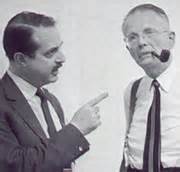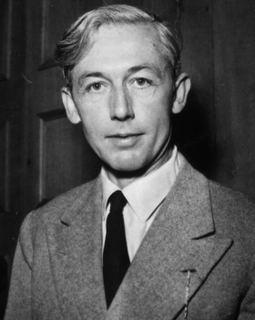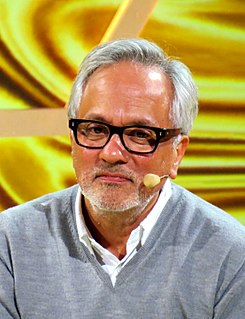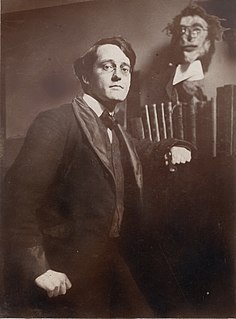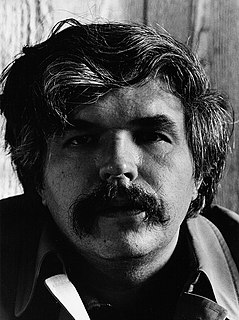A Quote by George Richard Marek
[Opera] does not call so much for an imaginative ear as for an imaginative eye, an eye which can see beyond little absurdities toward great truths.
Related Quotes
The ear is profound, whereas the eye is frivolous, too easily satisfied. The ear is active, imaginative, whereas the eye is passive. When you hear a noise at night, instantly you imagine its cause. The sound of a train whistle conjures up the whole station. The eye can perceive only what is presented to it.
The great and secret message of the experiential mystics the world over is that, with the eye of contemplation, Spirit can be seen. With the eye of contemplation, the great Within radiantly unfolds. And in all cases, the eye with which you see God is the same eye with which God sees you: the eye of contemplation.
The ear participates, and helps arrange marriages; the eye has already made love with what it sees. The eye knows pleasure, delights in the body's shape: the ear hears words that talk about all this. When hearing takes place, character areas change; but when you see, inner areas change. If all you know about fire is what you have heard see if the fire will agree to cook you! Certain energies come only when you burn. If you long for belief, sit down in the fire! When the ear receives subtly; it turns into an eye. But if words do not reach the ear in the chest, nothing happens.
The camera can push the new medium to its limits - and beyond. It is there - in the "beyond" - that the imaginative photographer will compete with the imaginative painter. Painting must return to the natural world from time to time for renewal of the artistic vision. The key sector of renewal of vision today is the new vistas revealed by science. Here photography, which is not only art but science also, stands on the firmest ground.
Imagine an eye unruled by man-made laws of perspective, an eye unprejudiced by compositional logic, an eye which does not respond to the name of everything but which must know each object encountered in life through an adventure of perception. How many colors are there in a field of grass to the crawling baby unaware of ‘Green?’ How many rainbows can light create for the untutored eye?
